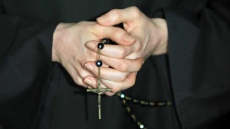TORONTO — Parts of federal and Ontario laws requiring sex-offender registration in cases where an accused is granted an absolute discharge after being found not criminally responsible discriminate against the mentally ill and are therefore unconstitutional, Ontario's top court ruled Thursday.
While the court ordered information belonging to the man who brought the case to be deleted immediately from sex-offender registries, the justices also gave governments 12 months to fix the offending legislation, widely known in Ontario as Christopher's Law.
"Persons found (not criminally responsible because of a mental disorder) stand in a dramatically different place than those convicted of a criminal offence," the Appeal Court said. "(They) have done nothing wrong in the eyes of the criminal law, and cannot be punished by the state for what they did."
The challenge was brought by a man identified only as G, who was charged with sexually assaulting his wife while in a manic state. He was found not criminally responsible in June 2002. The Ontario Review Board granted him an absolute discharge a year later.
He has since led a "law-abiding and productive life," according to court records.
Nevertheless, under Christopher's Law enacted in 2001, G was required to register as a sex offender for life. Among other things, the law requires him to provide personal information to police, and report to them once a year.
Similar federal legislation, enacted in 2004, imposes the same requirements but allows termination of the registry obligation 20 years after the not criminally responsible finding.
G, 57, challenged the constitutionality of the registries as they apply to those found not criminally responsible and who have received an absolute discharge from a review board.
Both Ottawa and Ontario argued the laws were in line with the charter, or were otherwise justified in a democratic society.
In November 2017, Superior Court Justice Thomas Lederer rejected G's challenge, prompting his appeal.
In its decision, the Appeal Court noted that people found guilty of sexual offences but who receive a discharge are not deemed to have been convicted under the Criminal Code. As a result, they don't have to register as sex offenders.
However, those found not criminally responsible on mental-health grounds are deemed to be not guilty and can't use the same provisions. The Appeal Court said this amounts to discrimination against the mentally ill.
"The absence of any 'exit ramp' from the sex offender registries — apart from a termination order after 20 years in the case of (the federal registry) — reflects an assumption that persons who committed criminal acts while (mentally ill) do not change, but rather pose the same ongoing and indeterminate risk they posed at the time of the offence," the Appeal Court said.
"This assumption feeds into the stereotypical notion that persons found (not criminally responsible) are inherently and indefinitely dangerous."
The automatic imposition of long-term registration orders ignores the fact that the person was deemed not responsible for a crime, and can also undermine the progress that led to an absolute discharge, the court ruled. As such, the registration and reporting requirements go too far and cannot be justified the court said.
In putting the ruling on hold for 12 months, the Appeal Court recognized that giving immediate effect could pose a risk to public safety. It also said fixing the laws will involve policy choices and considerations along with some federal-provincial co-ordination.
However, the court also ruled that changes to make the law compliant with the Charter would most likely see G removed from the registries. It would therefore be unfair to make him wait for a remedy for the violation of his rights and the ruling should apply immediately to him, the court said.
The federal and Ontario governments did not immediately respond to requests for comment.




